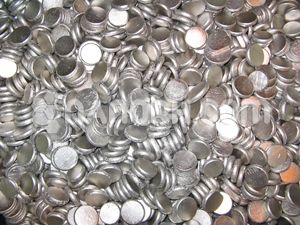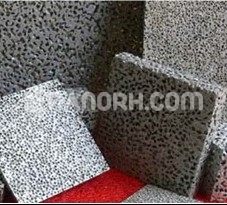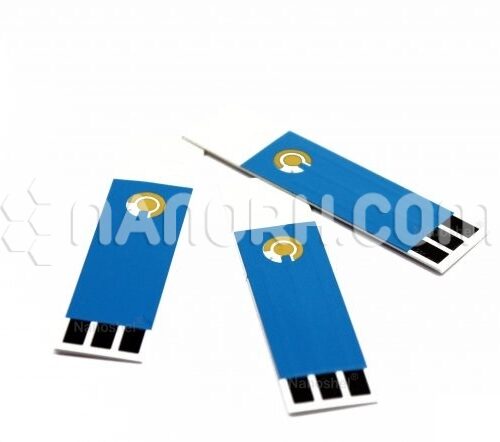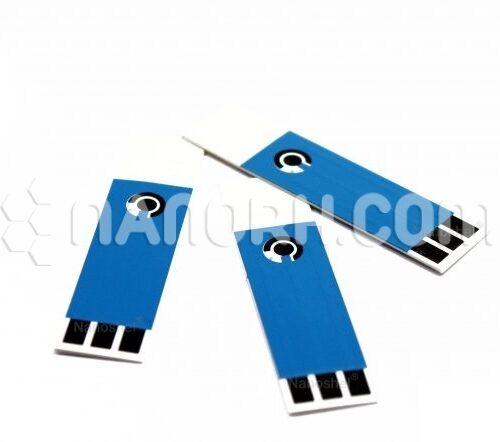Nickel Chips (Ni, Purity: 99.94%, Size: 2-4mm)
| Nickel Chips | |
| Product No | NRE-52025 |
| CAS No. | 7440-02-0 |
| Formula | Ni |
| Purity | 99.94% |
| Size | 2-4mm |
| Color | Silvery |
| Molecular Weight | 58.69 g/mol |
| Density | 10.22g/cm3 |
| Melting Point | 1453 °C |
| Boiling Point | 2732 °C |
| Thermal Conductivity | 90.9 W·m-1·K-1 |
Nickel Chips
Nickel chips, which are small pieces or flakes of nickel metal, are used in various industrial and technological applications due to their unique properties, including corrosion resistance, thermal conductivity, and electrical conductivity.
Battery Manufacturing
Application: Ni are used in the production of nickel-based batteries, such as Nickel-Cadmium (NiCd) and Nickel-Metal Hydride (NiMH) batteries.
Benefit: Provides essential nickel content for electrodes, contributing to the battery’s energy storage capacity and overall performance.
Catalysts
Application: Ni are used as catalysts in various chemical processes, including hydrogenation reactions in the chemical and petrochemical industries.
Benefit: Nickel acts as an effective catalyst, facilitating the chemical reactions and improving process efficiency.
Alloy Production
Application: Nickel chips are incorporated into alloys, such as stainless steel, superalloys, and other specialized alloys.
Benefit: Enhances the mechanical properties, corrosion resistance, and thermal stability of the resulting alloys.
Electroplating
Application: Nickel chips are used in electroplating processes to deposit a nickel coating on various substrates.
Benefit: Provides a durable and corrosion-resistant surface, improving the appearance and longevity of the coated parts.
Magnetic Materials
Application: Nickel chips are used in the production of magnetic materials and components, such as permanent magnets and magnetic cores.
Benefit: Nickel contributes to the magnetic properties of the materials, making them suitable for various electromagnetic applications.
Electronics and Electrical Contacts
Application: Nickel chips are used in the manufacturing of electrical contacts and components in electronic devices.
Benefit: Provides good electrical conductivity and resistance to corrosion, ensuring reliable electrical connections.
High-Temperature Applications
Application: Used in high-temperature environments, including aerospace and industrial furnace components.
Benefit: Nickel’s high melting point and thermal stability make it suitable for components that operate under extreme conditions.
Chemical Industry
Application: Nickel chips are used in the chemical industry for various purposes, including as a material for reaction vessels or as part of chemical processing equipment.
Benefit: Nickel’s resistance to corrosion and chemical attack makes it a valuable material for handling aggressive substances.




